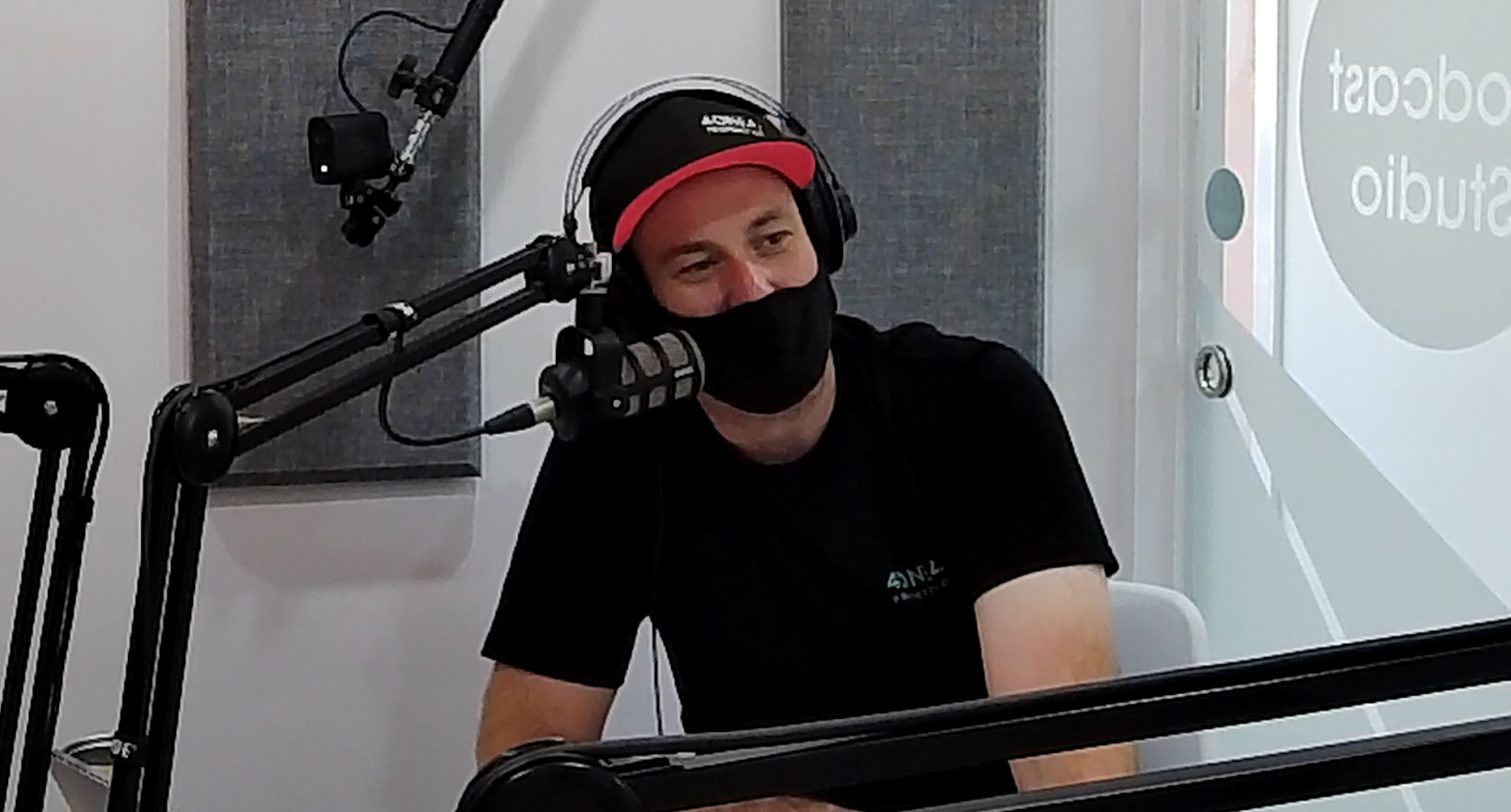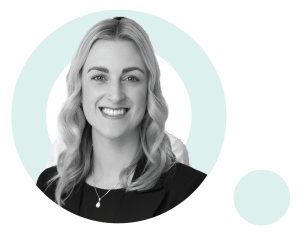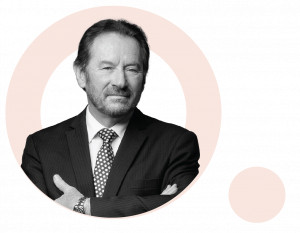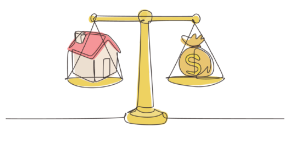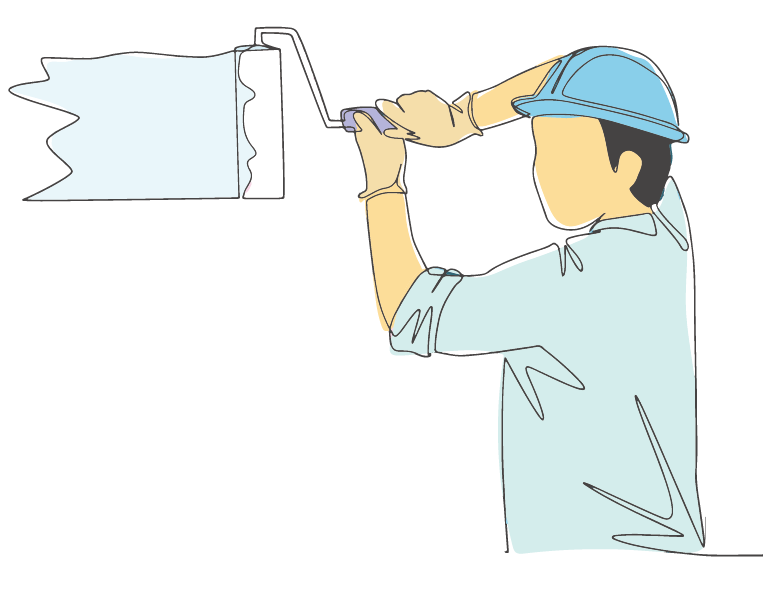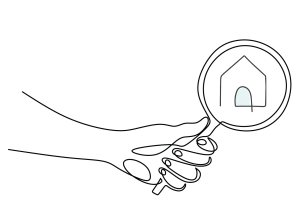This week Aaron is back at the desk to lead the show, as Pat and John jump into some proposals that could help ease some of the Housing Affordability issues that face Tasmanian and Australians.
It’s great to have the whole team back together to have another engaging and easy to listen to chat about all things property in the Hobart marketplace.
If you have any ideas or comments for the team at The Property Pod, don’t hesitate to reach out and provide some feedback.
| Episode: | E113 |
| Show Title: | Housing Affordability and Helping People Get into Homes |
| Cast: | Aaron Horne, Patrick Berry & John McGregor |
| Guests: | – |
| Show Length: | 26 minutes 02 seconds |
Aaron
Get the land for free. You just pay the cost of the construction. Building more places. People are going into that, opening up other homes for people that are homeless or need another place to go.
INTRO: Going once, Going twice, your listening to The Property Pod
Aaron: All right, guys. Welcome back to The property pod of your weekly engagement into real estate here in the Hobart and Tasmanian marketplace. It gives me great pleasure to be back on the mic with the boys at the desk. Real estate agents here at 4one4 Property Co, Patrick Berry and John McGregor….Boys. I’m back!
Aaron
It’s good to be.
John
Back, baby.
Patrick
It’s good to be back. Thanks for holding down the fort Somewhat while I was away.
Aaron
Well, I was actually listening to your interest because I was excited to hear you back on the mike, your weekly engagement. I think we have to say that loosely these days because John and I didn’t get too many episodes out while you were gone.
Patrick
Look, I was actually the weekly intention. It was fun, been on the other side of the fence and actually being an audience member and not being the guy that it is that not being the guy that kind of drove the conversation. It was really fun actually being on the other side to the first two weeks. I was like, Oh, man.
Patrick
Like, you know, got a little bit of time of my hand being a fresh father of two. Yes. For anyone out there. New addition into the family was brought into the world. Henry Ronald Horne. Uh, yeah. Six weeks old today. But, yeah, I was kind of I yeah, I’ve got to rock him to sleep. I listen to podcasts.
Patrick
I’ll listen to the boys.
John
Yes.
Patrick
John is then come into the show and said, I promise next week I’m going to hit the buttons.
Aaron
Do you know what I love straight off the bat about that? As is that we can put Henry just like that. So quality is so is that it puts newborn babies to sleep.
John
Soothing tone.
Patrick
Voice award winning and baby rocking. Yeah. No, I wouldn’t say it. I got him just like my mom.
Aaron
There’s a new market there.
John
Baby rocking podcast.
Patrick
Yeah. I asked him, like, hey, listen to us talk property and sleep well. Marcus and Nixon.
Aaron
Do your.
Patrick
Side, but there’s proof in the pudding. No, I. Look, it’s. Yeah, I. I really enjoyed listening to two weeks that at the start, and then you guys went and recorded that amazing episode last week with Chris. Absolutely. Cracker. Yeah. What a guy.
John
Yeah, it was it. He was awesome that he reached out and it was nice to sit and just have a listen to someone who’s just it’s he’s just discovered this obviously years down the road, and it’s just become all consuming for him. So it’s just the passion that he brings behind it. And obviously with that comes all the study involved as well, which is really cool just to figure out where he’s at and what he’s doing with it.
Patrick
Yeah, well, talking about putting people to sleep with podcasts, like he definitely didn’t fall asleep on the job. Just saying that, you know, he had the injury and then he went on to kind of be like, I got deep into podcasts and actually when he said the thing about making a little glossary of terms I can’t remember did call it micro blurbs or there was a website, I’d never heard of that.
Patrick
So I was like, Oh, I’ll write down a little glossary of terms. I learned from Chris way. I went to that and there you go. It’s retained in my head. So thank you, Chris, for, for that. Just as, as a jumping off point. But yeah, so passionate. And as you said, like he was in the hole 40 grand or something like that at some stage.
Patrick
And then so it’s not like he’s come from this place of entitlement and, and it’s been like he has everything on a silver platter. He’s, you know worked and obviously I a well researched and pragmatic guy who’s said I’ll drive the 7 hours a day. Yeah that was awesome episode. If you haven’t listened go back and listen to that one.
Patrick
Yeah. Just another perspective of investment and how you can get into the property market.
Aaron
I think what’s exciting is Chris seems pretty keen to become almost like an honorary fourth member of the Team Here podcast. So I think you guys will start to hear a bit more of him over the coming months.
Patrick
I actually really liked the idea when you said a super episode with him and Simon Pressley. I was just like Friends of the pod. Like, Imagine those two guys basket. Actually, we wouldn’t have to talk like, No, no.
John
Then we just do this, let it go and we’ll go.
Aaron
On like it. Like a takeover episode. Yeah, yeah.
Patrick
No, it shout out. As I said, anybody that hasn’t listened, go back and check out last week’s episode and if you want to see some funny button press and go back to the two before that and.
Aaron
Look, I’m so glad I’m just back here sitting behind the microphone this week as because your jobs shit, right?
Patrick
It’s well theorized maybe bring it on. So yeah, we’ve, we’re back in action. It’s really good to be back. Let’s jump into some property stuff today. I kind of it was funny being away from real estate and being away from the offices. It’s it’s kind of interesting just taking a step back and and seeing how things are on on the other side.
Patrick
A lot of the articles that were coming through while I was away and just kind of still pricking my eyes was this kind of affordability how people really want to get into homes. And we’re in a lucky position where we bought our home at a at a good time and you know, the price of it now, like I wouldn’t be able to afford getting into the market where I am.
Patrick
Yeah. If I was looking to buy now. So affordability and trying to get especially this podcast, we want first time buyers out there to. Yeah. Get a chance to get into a home. It was just one of those problems where I was just like, well, how, how, how can we help people with this? How can we kind of talk around affordability and people trying to enter the market space?
Aaron
And look, it’s a huge problem not just here in Hobart, but right across Australia. Like my mum and dad came back from the Gold Coast last week and there’s two hotels up there, brand new, never been lived in, so I think there’s nearly four or 500 rooms sitting vacant up there, but yet there’s so many people that haven’t got a house to live in at the moment.
Aaron
Yeah, and all the news articles and all these people are out there saying, well, why can’t they, you know, temporarily live in these hotels that are not actually operational and being used? Yeah, yeah. They’re just giant accommodation towers that are doing nothing. And so it’s definitely a problem, I think, which is right across the country. And yeah, I mean, interesting to put some show notes together about some potential ideas the government could implement to, to help fix the problem.
Patrick
Yeah. And obviously, like these aren’t like hard and fast things that are definitely going to work. Like we can’t get on our podcast and solve the affordability problem. We’re not trying to say that in any way.
Aaron
Listen, and ScoMo, we’re here to help you.
John
Exactly.
Patrick
That and I think he’s got a ukulele at his side. Yeah, it’s just a reference to my son Akiva on home ownership figures. Let’s, let’s talk about I’ve got a start here that in 1981 more than 60% of young Australians aged between 25 and 34. So just out of our age bracket man, that’s great. That’s just out of us.
Patrick
We used to be right on the cusp of that 34. They owned a home. So the latest census figures show from 2016 though that’s dropped to under 45%, so it’s a drastic drop off people who have owned homes and it doesn’t seem like it’s getting any easier.
Aaron
It’s probably getting harder to a degree.
Patrick
And that seems to be the report that kind of pricked my ears into this. It was, it seems to be a tricky, tricky thing to be able to get into the market especially with prices rising. They don’t seem to be slowing. From everything we’ve heard, things are still going to keep going up. So how can you get into the market.
John
Now with that I guess the that’s where I’d be. It’s interesting. I think I remember looking at this little snippet of an article that said, you know, housing affordability like a decade like in the fifties, forties or something. So it’s not like it’s ever it’s not ever been a consistent talking point. But that element now where it’s showing that that gap of actual home ownership is getting further and further and further away for first time buyers.
John
That definitely is concerning because the you know, the the excess and the trend of what that means for new people, you know, for young people certainly is not good. You know, obviously, it’s going to be harder.
Aaron
And look, it’s just not there. The cost of house is increasing. It’s the fees that come along with buying the home as well. Like a lot of purchases. We’ve talked about it before. Stamp duty. People forget that that’s a fee that they have to pay when they buy.
Patrick
A house date.
Aaron
And when it’s worked out on how expensive the home is. So as the homes get more expensive, stamp duty gets more expensive. And so once you might have been paying, you know, $10,000 stamp duty for most homes in Glenorchy, now you’re probably up to 15 or 20,000 to be able to secure a home on top of the purchase price.
Patrick
Which is a huge chunk out of your deposit or like again in this.
Aaron
We’re getting under 80% LV so we have to avoid mortgage insurance is near impossible these days.
Patrick
Yeah. So you know you can, if you’re lucky you can withdraw from the bank of mum and dad if, if they’re around to help or you’ve got someone to help back you, but if not you there again and as we’ve said it’s that spreading that time of where I have hit my mark where my deposit should be on a still need another 15 grand.
Patrick
So that’s another year on top of my savings which then the prices may have jacked up again and so you’re always chasing that. Yeah.
John
Chasing it out. Yeah, absolutely.
Aaron
And for a lot of first time buyers I don’t even think they realize that stamp duty exists. So I have no.
Patrick
Idea about it.
Aaron
They like they’re usually online calculator on one of the bank’s websites and it says, I earn this much money so therefore I can borrow X and then they go and check what the repayments on that like. Yep, I can handle that. They get all excited real estate dot and first time I go to visit an open home, the agent says, you know, have you been pre-approved?
Aaron
No. So we send down that jet and then they get hit with this yeah. The $20,000 fee or $15,000 fee that they had no idea that they even needed to account for. And then all of a sudden that dream of owning the home just seems oh yes.
Patrick
Well and then yeah, it pushed you back further and still get this, this idea of the younger or the poorer side of society are kind of yet getting left behind. And how can we move forward and help them get into the property market? So there’s two kind of proposals that we saw come up in the news. I think ABC News I found two articles.
Patrick
One was the Federal Government’s share house scheme. I thought maybe John or Pat, you guys could take the lead and kind of go into what that is. And then there was another one that was kind of a model from Singapore that an economist might be put forward.
Aaron
Yeah, definitely. Yeah. You go first.
John
Well, the share scheme had actually already happened quite a lot in Tasmania. Okay, so the.
Aaron
ANZ leading the way.
John
That’s it where the effectively the Government would go into 30% ownership of the property often where they’ll build the build builder homes, it’s eligible only to first time buyers exclusively and they have to live within that house for a certain amount of time. And just and then if they’re ever to sell the home they have to pay back that which was invested from the government.
John
So with the 30%, let’s just say at the time we had a lot of development at shingle once before on the site of an old school and the, the prices at the time I think were around about say 260, 280,000 and so the government would front 30% of that which ends up being owned maybe $180,000 of this property.
John
Yeah. Then as those values increased, so did the value for both the, the, the homeowner and the government share as well. And so if I think at the time he had to actually that’s where they’d contribute 50 grand. But if there was a profit ever to be made on the sale, the profit belongs to both the owner and the government.
John
So you end up being a co-owner with the government.
Patrick
Okay. Yeah sure.
Aaron
Yeah. So on the title it’s, you know, your name plus the Housing, Housing Tasmania. All Yeah I think it was. Yeah. And that’s exactly right. As the house went up in value the government got their share of the profit and loss as well. But if the house went down in.
Patrick
Size, so what happens with the loss?
Aaron
Yeah, same thing. Government took the loss. I got hit. You don’t have to pay them back. It’s all part of the risk involved in the scheme. Sure. And that’s exactly what this Brendan Coates from the Grattan Institute Institute is proposing for an Australia wide scheme. Yeah, he’s suggesting what actually Tasmania’s been doing for quite some time now.
John
Yeah, yeah. Because they’re still doing the same with uh, was it set the Centacare vote program? It effectively still functions the same way, doesn’t it, mate?
Aaron
Yeah, pretty much. It’s all about first time ownership. There’s a few less people involved in that scenario. But yeah, the Keith thing here is, is that by the government pitching in 30% on this scheme, it means that, you know, if the purchase got enough for the stamp duty component, the Government put the 30% for the actual purchase price in, then they’re only borrowing 70% of the price of the property.
Aaron
Yep. And then that can avoid mortgage insurance and the extra fees that come along with that and it puts them in a safer position from a lending perspective as well. So it means that if you know something did go wrong and it had to be sold or you know, you did go bankrupt, the bank feels better about it because you know they’ve got 30% of the house paid for all the risk is taken by the Government in this scenario.
Aaron
Yeah.
Patrick
And so just with this one that’s running in Tassie and the proposal, what happens with the interest on is their interest on that 30% that the Government know not. So that’s kind of another windfall that you kind of get in front of.
Aaron
Yeah. So yeah, your monthlies become cheaper. Yeah. Because you’re not borrowing 100%, you’re exactly borrowing less money. Yeah. So you’re not paying as much interest and as much repayments each month.
John
I think what’s interesting about those two is that the um, obviously it’s limited to a certain selection of people. So I look at that is that’s reduced competition as well for those people that are looking to get into it.
Aaron
Yeah, for sure.
John
Not to say that’s a good or a bad thing, but where the often the real challenge is and that’s where they will argue against negative gearing for example is that um, by with that application, with that option investors have a distinct advantage against first time buyers when it comes to purchasing course and so buy these schemes like they’re just putting a nice little blanket over here is like this is where you guys can be and compete without the rest of the influence of the market.
John
So like coming in and just completely beating you up at a completely taking it out of the run.
Patrick
Yeah. Yeah. It’s like showing up at like a tennis court and like the club pros just like I’m just going to just at the clay on the floor with you and like, yeah, sucked in. That’s like, yeah, there’s no way of like working your way up to the top may go on to compete in the Australian Open. Basically, it’s been like, I’m expecting to win, but I’ve got to play Rafael and Darwin.
John
And just it doesn’t happen.
Patrick
Yeah, exactly.
John
Well, I know there was you know, a friend of mine had recently sold his house out of the scheme that he’d got into with that same juju development some time ago and it’s worked out really well for him.
Patrick
Okay, so you actually have real world kind of an example of this, like someone who knows.
John
So few people that I know. Back to that, that same development. Um, and at the time the, I think it was about 50 grand or so that they um, were contributing to those houses. So there’s none of them were able to afford a house otherwise it kept aside from getting into that scheme. Yep. Um, and he lived in there for several years eventually to, you know, converted into an investment property.
John
Um, and you know, that’s that since sold and you know, he’s got another problem, he’s got another property now another friend of mine, she, she was well into her forties at the time and she’d never been home and then because of that scheme was able to get into that development cycle. But at the time, because she’d been a single mother like this for most to be a single mum, so had never been able to get a establish itself financially well enough to build that giant deposit that people need yeah.
John
So by that deposit being taken care of she could then absolutely for the repayments but it’s always that initial outlay that seems to be the biggest challenge for I was.
Aaron
I have also said a couple of these homes for a few people and it has made me laugh at different times because you know, if the time comes to sell and then they’re gently reminded that the government owns 30% of the house because I don’t see it that way. And then when the profit gets figured out and the government gets to take 30% of the profit, I have had a few owners that are whingeing and complaining, oh the government is taking all our money.
Aaron
Right. Well, you know, the.
John
Only reason why you.
Aaron
Got into the house, because they helped you to begin with and you signed the deal saying that you agreed to pay them 30% of any profit. So, you know, it’s a.
Patrick
I guess it feels like a hard pill to swallow. But yeah, it’s, it’s, you’ve got your leg up and you just have to remember that your little ladder that got you there is, is helpful. And it’s, it’s that really tricky part of kind of I wouldn’t be here without it. So I need to remember that it’s.
Aaron
When we just. Yeah, exactly right. Let’s say there’s $100,000 profit you’ll walk in the way of 70, the government gets an extra 30. Well that’s 70 you never have. Exactly. Yeah. We need to remember that it.
John
Really is interesting where our moral high horse I suppose can quickly disappear the second that money’s involved, you know, it’s like, oh that would be it, you know, it’s so important I got this really great thing, right? The other end is like, now I’ve got money that’s coming in the back end. It’s like, Oh, I can’t believe I’ve got to pay all that.
John
But just completely forgot about the gift that was passed on initially.
Patrick
Yeah.
Aaron
So look, we’ve been talking about how it is set in Tasmania at the moment and has been up and running. This particular person is suggesting that it becomes a federal scheme and goes Australia wide. Yeah, yeah. He has put a couple of limitations on it that the purchaser has to have at least a 5% deposit to put towards the Government’s 35 30% and that they have to be earning incomes below 60,000 if you’re single or 90,000 if you are combined.
Aaron
So there’s also stipulating that, you know, it’s designed to help people get into the marketplace that would struggle in other means. So yes, which you know, that’s good in some ways, but I would have thought 69 in today’s marketplace. 94 combined.
Patrick
Yeah, we’re.
Aaron
Going to actually be able to afford to buy a house on 90 at the moment.
Patrick
The way rental prices are as well. It’s kind of hard like because you’re like, I know people buying more on their their rent than I am of a mortgage sort of thing. That’s a tricky.
John
One and I guess it always comes down to the way that they do that. The means testing, which is 25 to 35 25 to 30% of your income. So ultimately if the mortgage repayments exceed that, they’re the means test, well then it, it isn’t an option anyway and that obviously it’s a difficult number to massage through because um that depending upon the area will obviously change again, you know, $60,000 a month is worth a lot less than $60,000 and another.
Aaron
Exactly. I can’t imagine like a Melbourne suburb, even those outer suburbs, you know, an hour out of the city that people commute to you know, that even still working on that scenario, it’s probably still too expensive.
John
Yeah.
Aaron
Well it’s probably more your regional towns that this is currently aimed towards sort of.
John
Yeah. But you know potential areas that do need that population increase. Yeah. I guess I just, I just think that it is interesting concept in the sense that um, it is exclusively to first time buyers only. So it’s just one little, one bracket that are competing against each other and not against the, the wider market. Yeah. Um, which I think is an interesting idea.
Aaron
Well, I think that’s a perfect point to pivot across to the next game. Hm.
Patrick
Yeah. So this one’s the this one’s a Sydney economist. Cameron Murray recently put forward a proposal. He, he called it Housemate. It’s got a cool, catchy name. It’s loosely modeled on the Singapore’s Housing Development Board program, which houses more than four in five of the city’s city resident.
Aaron
So which strand of the bit that’s crazy heaps. That’s like. Yeah, so it’s eight out of every ten houses are done in Singapore by the HDB. So the Singapore Housing Development Board, which is a massive amount of property that the government’s involved with over there, I.
John
Suppose to like the old giant Scalise’s.
Patrick
Yeah, there’s no land. Like, it’s just like an island like this. Yeah. So it’s just got to be like, well, it’s not like we got to go up, this.
John
Guy go up and like the, you know, it’s owned by the country’s like we go up.
Aaron
Yeah. So what makes this scheme interesting and how it works in Singapore is that the Singaporean people, so the owners of the property actually dip into the version of superannuation that we have here in Australia to be able to afford the deposit and also part of the repayments. So they are to like it allows them to get into the marketplace by using some of their super that they already have saved.
Aaron
So the argument I guess is, is that, you know, you’ve got all this super money tied up sitting in an account is it better to use some of that today to get into the market to better your financial position later when you retire. Yeah.
Patrick
Versus leaving. It’s waiting to get there and you actually haven’t earned it like you.
Aaron
Yeah. Like with the way property prices continue to rise, you’ve got opportunities there to make more value out of that so far than just sitting in an account until you you know, seven years.
Patrick
Old and living rough until you get to that 70. And then you’re like, Oh, I’ve had a pretty rough life to get to this super and now can’t even actually enjoy it with my own home.
John
Yeah, exactly. Because I’m paying a stupid amount of money in rent.
Aaron
Yeah. So yeah, Cameron is suggesting that potentially here in Australia we could develop a similar style scheme where it helps people that are disadvantaged or not in a position to be able to buy a house, traditionally use some of that equity that they have in their super to be able to get a foot in the door into the marketplace.
John
Well and it’s, this is an interesting point too, is that they would also have to live in the home for at least seven years and after that they could either sell it to another person eligible for the House might scheme or buy a 15% premium back to the government. Could you going to sell it to someone else? Um, so it’s always, it’s trying to um, you know, keep someone within the cycle in that sense.
John
So you will get the benefit of capital gain. Um, is sort of the way I suppose you could look at it from that. Yeah.
Aaron
Change over element and look the other things that form part of it. So in Singapore they do it on reclaimed land. So that’s where, you know, you pump sand and dirt into the ocean and you make your country largely from land that doesn’t exist. But the way that suggesting it here is that the government uses some of their surplus land that is still owned by, by them and almost give it to the country or to the people for free to be able to get in.
Aaron
It also proposes that having an incredibly low interest rate finance of only 1.1% to to cover the mortgage repayments to make it incredibly cheap. So I guess what they’re trying to do is make it like you just described, John, almost cheaper to own the home than it is to rent in the current marketplace. So in that way they can get a lot of people out of the rental and the housing department projects.
Aaron
Yeah. Into home ownership where they can actually start to create wealth.
Patrick
I guess more homes for the more people. That kind of sounds crazy to compare Singapore to Australia, but like land size wise, we have land everywhere like we’re spoiled for land, but we should be spoiled for the dwellings. Like there should be ways of actually it’s going to talk next week. We might cover off on kind of we’ve spoke about medium density dwelling and stuff like that.
Patrick
There was an email that came through recently about yeah.
Aaron
From the Glenorchy Council. It’ll be a good topic to follow to next week.
Patrick
Yeah, I reckon kind of going from there because speaking of kind of where can we like building up Singapore’s building up like is that something that needs to be done here? But yeah, there’s plenty of land here. So I guess that urban sprawl might have to kind of grow out but like essentially like reading this thing here, it’s kind of saying yeah, get the land for free, you just pay the cost of the construction building more places.
Patrick
People are going into that, opening up other homes for people that are homeless or need another place to go.
Aaron
You know, you can have some people out there say, Well, why should someone get land for free? Well, the government is going to build a property on that land anyway and then put people into social housing where they don’t pay a huge amount of rent. Anyway. Is it better to give that land away to somebody? And then that creates generational wealth for that family and that because, you know, eventually you know, someone is going to pass away that wealth that’s been created gets passed back down through.
Aaron
And is that a better option than just having a continuous cycle of social housing yeah.
John
It’s not I don’t even have an answer to that, really.
Aaron
It’s it’s definitely an interesting concept, that’s for sure.
John
Yeah, I know the luck at the end. It says the expected problem, as always, is that availability of land. And I suppose, well, like you said, with the Singapore example, it’s reclaimed land. So even from a private funding element, it probably never happened. So that that combined investment from creating something that doesn’t even exist is very different than having to like, you know, either take over space or repurpose the space that may not even need to be used for, um, as in the first place.
John
That’s obviously a real distinct problem from Australia. And I guess the other thing too, um, where we are supposed like we just touch on and talk about next week is that the um, the urban design of Australia is probably not current with what the Australian now needs in the future. So that consistent, separate separation, single dwelling urban sprawl just does not suit the future.
John
And so it really has to have that reimagining before any a project like this would start.
Aaron
Which I’m excited because like us, as Aaron has mentioned, the Cliniche Council has got some thoughts around that. Yeah, I think it’s going to be a great episode for us to pivot to next week potentially we spoke about.
Patrick
Yeah, well look, I’ve had a great time being back in the studio. It’s been really fun. I think I’ve got the buttons pretty much down here, Pat, so I don’t know, it was not that hard.
John
I just always think it could be cool if it wasn’t like a Nintendo powered gloves. They could just sit there and.
Patrick
Oh, imagine, just rather.
John
Than having to use a thumb, you just, you just be like, you know, that one particular camera is connected to a particular finger.
Patrick
That sounds kind of like Minority Report as well. We’ll swap to John and Swatch over here now. I look, boys, it’s great to be back. Well, Don, holding down the Fort Lazor, I think last week’s episode with Chris was one of my favorites. As I said, if you haven’t listened to go back and do it, I’ll keep spruiking that one cos it is a cracker.
Patrick
Awesome to be back. Thanks for being back in here and we’ll be back next week with. Yeah, another cracking episode of the property pod.
Aaron
Well, some.
Patrick
Have been listening to the property, but recorded.
Aaron
And edited by 4one4 mediahouse.
Patrick
In conjunction with the full and full property code.
Aaron
This podcast is General Information Only and the thoughts of views expressed is the opinion of our panel and listeners should always take their news, their own investigation into any topic we discuss to ensure they fully understand their own situation.
John
It does not constitute and should not be relied on as purchasing, selling, financial or investment advice or recommendations expressed or implied, and it should not be used as an invitation to take up any agement or investment services. No investment decision or activity should be undertaken on the basis of this information without first seeking qualified and professional advice.

